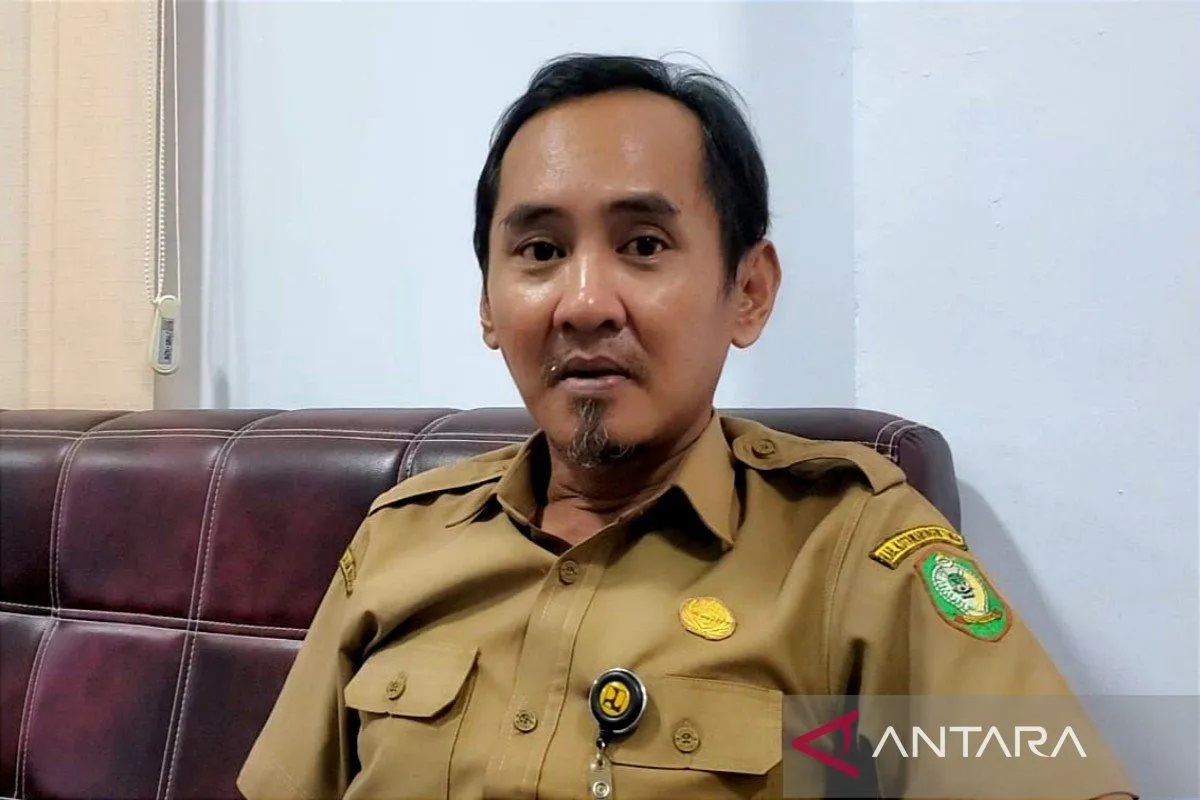News
East Kotawaringin Regency restructures infrastructure plan amid budget efficiency
WINDONESIA February 14, 2025 East Kotawaringin Regency SDABMBKPRKP Office Head Mentana Dhinar Tistama. (Antara/Devita Maulina)
East Kotawaringin Regency SDABMBKPRKP Office Head Mentana Dhinar Tistama. (Antara/Devita Maulina)
The East Kotawaringin Regency Water Resources, Highways, Construction, Public Housing, and Settlement Areas Office (SDABMBKPRKP) Office is restructuring the infrastructure development plan of East Kotawaringin Regency, Central Kalimantan due to the central government's budget austerity.
"This budget efficiency [cuts] will definitely have an impact on us, [as] some things need to be rationalized or readjusted. However, we are still waiting for the budget composition to be adjusted at the regency level," said East Kotawaringin Regency SDABMBKPRKP Office Head Mentana Dhinar Tistama in the East Kotawaringin Regency capital of Sampit, which straddles the districts of Mentawa Baru Ketapang and Baamang.
President Prabowo Subianto implemented a budget efficiency policy, ostensibly to ensure government expenses is on target and has a direct impact on the community. The policy is stipulated in Finance Minister Decree (KMK) No. 29/2025 on the Adjustment of Details for Transfer Payments to Provinces/Regencies/City for FY 2025 according to Spending Efficiency in Implementing State and Regional Budgets for FY 2025.
The transfer payment cut for East Kotawaringin Regency reached Rp141 billion that impacted, among others, the Special Allocation Fund (DAK) and funds for infrastructure, health care, and education.
Mentana admitted that the East Kotawaringin Regency SDABMBKPRKP Office is significantly affected by the budget austerity as the local government apparatus carrying out East Kotawaringin Regency's infrastructure programs. That is because the budget for said programs come from transfer payments, be it DAK, the General Allocation Fund-Specific Grant (DAU-SG) or palm oil Revenue Sharing Fund (DBH).
"There will be zero allocated DAK while palm oil DBH is not withdrawn yet because there is an instruction from the [Finance] Ministry that it is temporarily pending, so there is no contract for it yet. Meanwhile, the DAU-SG value is also zero," explained Mentana.
"But I don't know about other offices, as ours is not the only one working on infrastructure. There is also the Public Works, Spatial Planning and Land Office. What is clear is that there is no allocated DAK and DAU-SG for ," he added.
Mentana said that the East Kotawaringin Regency SDABMBKPRKP Office is still waiting for the adjusted budget composition from the East Kotawaringin Regency Government to base the restructuring of the infrastructure development plan.
The infrastructure programs which was previously funded by DAK for the regency include the reconstruction of Simpang Kalang Tumbang Kalang Road with Rp27 billion budget, rebuilding of Kandan-Camba Road with a budget of Rp26 billion, reconstruction of Nusantara Road in Bapeang Village with Rp6 billion budget, construction of Basirih Hilir irrigation in South Mentaya Hilir District with a budget of Rp1.6 billion, construction of Sei Saan Bridge in Tualan Hulu District with a budget of Rp6 billion.
Meanwhile, the infrastructure programs which was to be founded by palm oil DBH include the reconstruction of Buana Mustika Road in Telaga Antang District with Rp13.8 billion budget. If possible, the program will continue to be enacted even if it would have to undergo budget cuts.
"We are still waiting for the budget composition at the regency level for infrastructure [because] the funding are not only from central government transfer payments, but also other sources [including] the regional budget," Mentana explained.
Mentana noted that the East Kotawaringin Regional Government Budget Team (TAPD) has held a meeting with offices related to budget austerity to sort out what to prioritize or cut since Feb. 10, 2025. He also said that his office supports the budget efficiency policy from the central government as within the latter's authority, and that the affected regions only need to adjust their plans.
"What is being made more efficient is also clear, such as reductions for official travel and training or study tours that must be attended in person because now things like that can be done online." he said.
In support of said policy, Mentana also carried the policy out in his office environment. That includes reductions on electricity use and official spending deemed unnecessary, such as the procurement of new laptops and air conditioners. In addition, he implemented a punctual work-home time for all his employees to save on various costs, including on electricity. Those who work overtime are required to have clear purpose to do so.
"We have not carried out any activities for the time being, except for important ones such as [disbursing] employee salaries and the ongoing office operations that are still being paid for," concluded Mentana.

